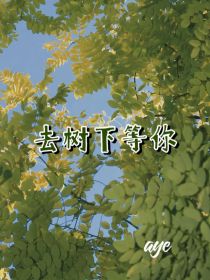八年级上册英语
Unit 1词组
1.去度假 go on vacation 2.在度假 be on vacation 3.拜访某人 visit sb = see sb
4.为某人买某物 buy sb sth = buy sth for sb 5.去海滩 go to the beach
6.相当多 quite a few= many 7.无事可做 nothing to do 8.照相 take photos
9.除...之外什么也没有 nothing...but
10.好像要做某事 seem to do 11.特殊的东西 something special
12.好久不见 Long time no see. 13.去有趣的地方 go somewhere interesting
14.大多数时间 most of the time 15.等待某人 wait for sb
16.到达(三种) get to = arrive at / in = reach
17.决定做某事 decide to do=make a decision to do
18.想做某事 feel like doing = want to do =would like to do
19.骑自行车去某地 ride a bike to +地点 = go to +地点 by bike
20.在过去 in the past 21.多于 more than = over 22.少于 less than
23.由于糟糕的天气 because of the bad weather
24.忘记做某事 forget to do 25.忘记做过某事 forget doing
26.继续做某事 go on doing= continue to do= continue doing
Unit 1句型
1. Where did you go on vacation? 你去哪里度假了?
2. Did you go anywhere interesting? 你去过有趣的地方吗?
3. We took quite a few photos there. 在那里我照过很多照片。
4. I just stayed at home most of time to read and relax. 大多数时间我在家里读书或是放松。
5. I bought something for my parents, but nothing for myself. 我为父母买了东西,没有给自己买。
6. There was nothing much to do in the evening but read. 在晚上除了读书无事可做。
7. I felt like I was a bird. 我感觉我是一只鸟。
8. I wonder what life was like in the past. 我想知道在过去的生活是什么样子的?
9. When we got to the top, it was raining hard. 当我们到达山顶时,雨下得很大。
10. Because of the bad weather, we couldn’t see anything below. 由于糟糕的天气,我们看不见下面。
不定代词和不定副词的用法
一.分类:1.指人的不定代词:
someone, anyone, everyone, no one,Somebody, anybody, everybody, nobody
2.指物的不定代词:Something, anything, everything, nothing
3.指地点的不定副词:Somewhere, anywhere, everywhere
二.具体用法:
1.以some开头的不定代词和不定副词用在肯定句中,以any开头的不定代词和不定副词用在疑问句和否定句中。 There is something in the room.
否定句:There isn’t anything in the room.=There is nothing in the room.
2.形容词修饰不定代词或是副词,要放在它们的后面。
如:something interesting 有趣的事情 somewhere warm 温暖的地方
3.不定代词做主语的时候,后面的动词用单数。 例句:Someone is here. Everything is good.
Unit 1知识点
1.根据构词法,一般加ed 的形容词修饰人,加ing的形容词修饰物。
无聊的: bored 修饰人 boring 修饰物 例: (1)He is very bored. (2)This book is very boring.
类似词有:interest, excite, relax
2.feel like 感觉像-----
(1)感觉像-----,后面经常跟句子 例句:He feels like (that) he is a bird.
(2)想做某事feel like doing =want to do =would like to do
例句:He feels like eating nothing. =He wants to eat nothing. =He would like to eat nothing.
3.because / because of 的区别:
区别:because 因为,后面接句子 because of 因为/由于,后面接名词
例句:(1)He can’t go to school because he is ill.
(2)Because of the bad weather, he can’t visit his uncle.
4.so+ adj. / adv + that + 句子 如此------以至于----
例句:(1)Our school is so beautiful that everyone likes it.
(2)The room is so small that we can’t live in it.
(3)The book is so expensive that I can’t buy it.
5.keep doing 一直做某事 例句:(1)She keeps reading books at home
初中芝士汇总提示您:看后求收藏(同创文学网http://www.tcwxx.com),接着再看更方便。
相关小说
- 偷偷的感情
- 1.0万字2年前
- 四声(少年游)
- 简介:想写一个现实向的同人文,CV圈的,配音演员真的太香了!沈容溪,字易安,男,家中乃书香门第,几代人都是学霸高产,可偏偏出了他这么一个异类。不仅学习成绩不算好,偏生还是个忽悠人的好手,靠着一张嘴行遍天下。沈某人觉得自己优点没有,缺点一大堆,成绩永远都是家里最拿不出手的那个。有一天,他遇到一个据说是总裁的配音演员,沈容溪凭一身少年意气,只身闯入这个陌生的领域,从生疏,再到游刃有余。去吧!去热爱,而不是被迫去接受。喜欢景向、羊仔、老赵、姜sir、霉霉、江山……众所周知,CV圈没有唯粉。事先声明,本文是同人文,纯属个人YY,请勿上升正主,勿上升现实!!!
- 8.0万字2年前
- 致你一封情书
- 简介:一部甜而又虐的小说。
- 3.1万字2年前
- 风过晚春
- 简介:别名:《等风起》现代校园言情主角:宋焕×虞晚春“虞晚春,我好像喜欢上你了。”——“宋焕,我就只等到三年后晚春的第一场风,你不来我就不等你了。”——“虞晚春,我回来了。”“宋焕,我终于等到你了。”
- 0.4万字1年前
- 去树下等你
- 简介:以后再介绍吧
- 0.4万字10个月前
- 校园言情:对不起,我们不合适
- 简介:没有主角
- 0.2万字10个月前





